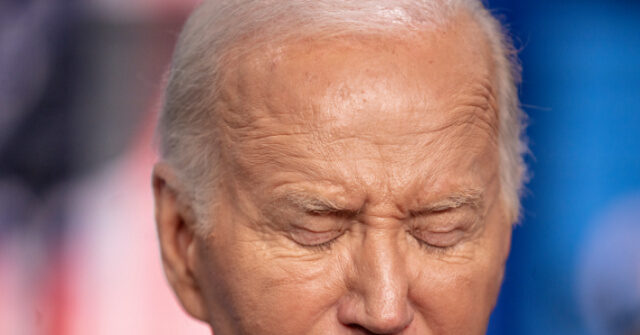Critics have scrutinized President Joe Biden for his recent comments in New Hampshire, where he suggested the need to “lock up” former President Donald Trump. Although Biden later clarified that he meant to say “lock him out” politically, the initial statement resonated negatively with observers. This contentious remark occurred in a broader political environment in which Vice President Kamala Harris and former President Barack Obama have emphasized the weight of presidential rhetoric. Harris and Obama argue that Trump’s words, filled with lies and constitutional disregard, pose a significant threat to democracy, echoing calls for accountability in political discourse. Obama recently declared that “everything a president says is serious,” underscoring the importance of responsible speech from high-ranking officials.
Biden’s statement drew immediate backlash from Trump’s campaign, with spokesperson Karoline Leavitt interpreting it as a sign of desperation among Democratic leaders who feel unable to defeat Trump electorally. Leavitt accused Biden and Harris of orchestrating a politically motivated agenda against their opponent, claiming their approach constitutes a real threat to democracy rather than Trump’s statements. She called upon Harris to publicly condemn Biden’s remarks, alleging that the administration’s actions were transparent in their intent to undermine Trump’s candidacy. This sentiment was echoed by Donald Trump Jr., who argued that the legal challenges facing his father were nothing more than tactics aimed at interfering with the electoral process, while Stephen Miller labeled Biden’s remark a public confirmation of Democrats’ intent to suppress opposition through legal means.
Biden’s slip is not an isolated incident; his history of controversial statements includes off-the-cuff remarks that have raised eyebrows on multiple occasions. For example, during a speech in 2022, Biden suggested that Russian President Vladimir Putin should not remain in power, prompting concerns about an implied advocacy for regime change in Russia. The White House was quick to clarify that Biden did not intend to call for such actions. Additionally, Biden has previously made perplexing comments attributing economic challenges in Japan, Russia, and China to “xenophobia,” showcasing a troubling pattern of verbal missteps. These instances contribute to a growing narrative questioning Biden’s competence and the clarity of his political messaging.
The White House has continually reinforced Vice President Harris’s integral role within the administration, with Biden explicitly acknowledging her significant influence over policy decisions. In a press briefing, he emphasized that Harris has been a vital part of their legislative achievements, presenting a united front on key issues. However, as various challenges have mounted under their leadership—ranging from rising inflation and international conflicts to immigration concerns—criticism of the administration’s handling of these situations has intensified. Observers are closely watching how both Biden and Harris navigate the complexities of their governance while facing mounting pressure from various political factions.
The backdrop of the current political climate is marked by economic hardships, including a significant increase in costs for consumers and ongoing geopolitical crises such as Russia’s invasion of Ukraine and instability in the Middle East. Many citizens express dissatisfaction with the administration’s response to these problems, particularly given the high stakes associated with the upcoming elections. The Biden-Harris administration finds itself under scrutiny not only for their policy decisions but also for their ability to maintain clarity and integrity in their communication amid a complicated and rapidly changing global landscape.
In summary, Biden’s remarks regarding Trump have sparked fierce criticism, suggesting a fracturing political environment where accusations of undemocratic practices are flying from both sides. While Biden has attempted to clarify his statements, the implications of his comments raise important questions about accountability and the role of political rhetoric. As both Democrats and Republicans gear up for the upcoming election cycle, the focus remains on how the administration will address its myriad challenges and the ongoing discourse regarding the integrity of democratic processes in the United States. Biden’s communication style and the administration’s overall effectiveness will be critical as they navigate political divides and seek to maintain public confidence in their leadership.

